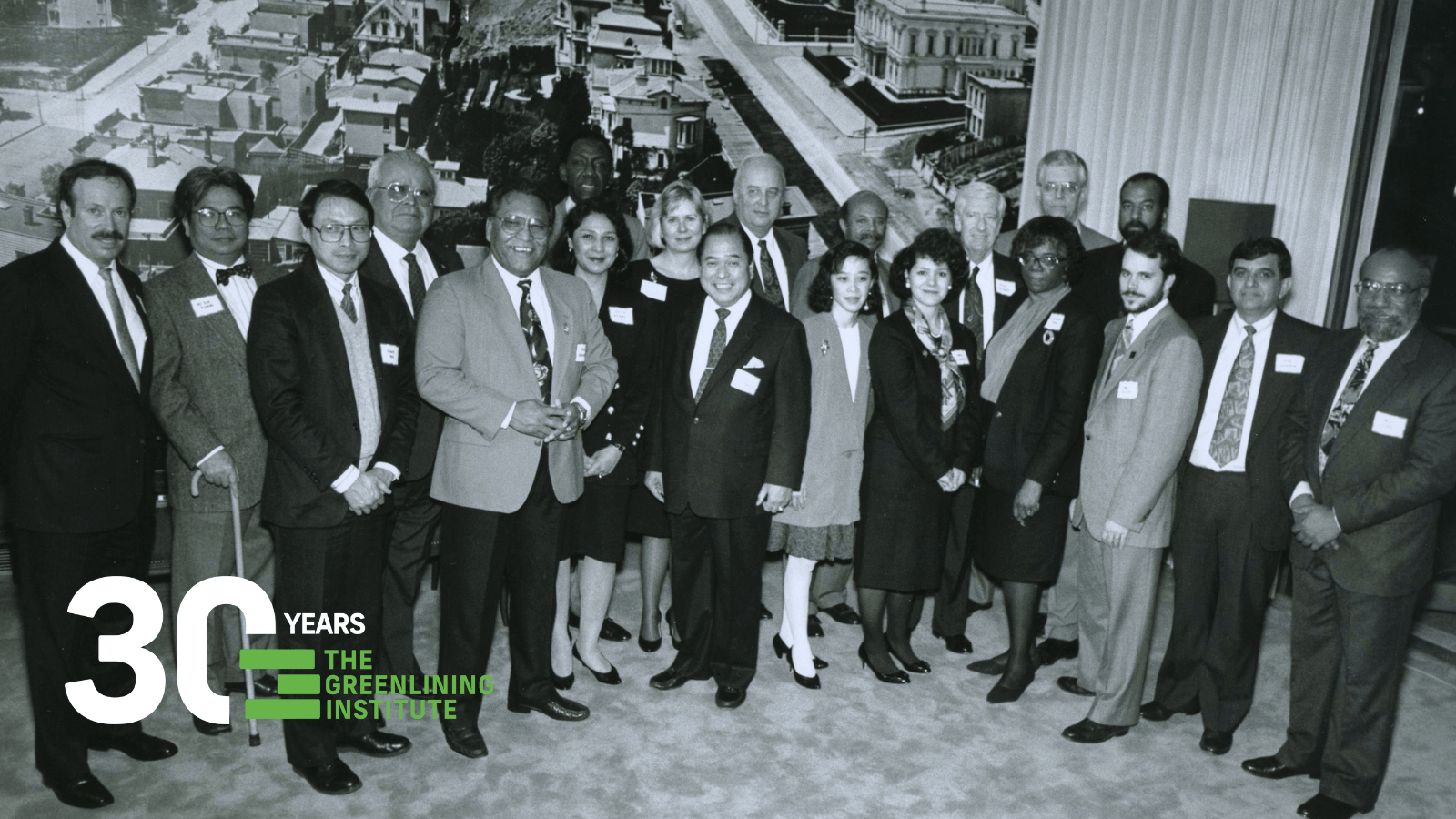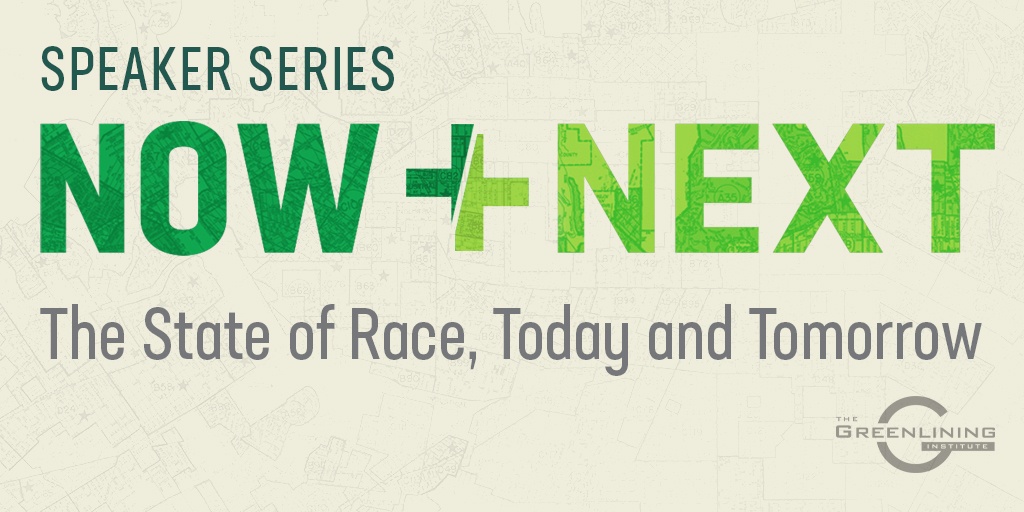Making Equity Real: Our 2021 Agenda for the California Legislature

The California Legislature is well into its 2021 session, considering hundreds of bills as well as the state budget. In my first post as Vice President of Policy, I’d like to update you on how we propose to make equity real in the legislature, and how that fits into our larger strategy for building a just economy.
We recently unveiled a new strategic plan detailing how we are working towards a future where communities of color can build wealth, live in healthy places filled with economic opportunity, and are ready to meet the challenges posed by climate change; we couldn’t be doing this work at a more urgent time. More than a year into a global pandemic that has been devastating for people of color, we must urgently advance racial equity and deliver relief and hope to the most impacted Californians. And we need to think beyond immediate relief and recovery to build structures that can reverse the impact of systemic racism over the long term.
Governor Newsom recently announced his California Comeback Plan, which proposes significant investments that provide immediate relief to the people who need it most. We are very enthusiastic about the recent announcements and urge the legislature to fully consider and even surpass the Governor’s proposal to ensure our recovery is as equitable as possible.
THE CALIFORNIA LEGISLATURE MUST DELIVER A JUST RECOVERY AND A JUST ECONOMY


Billions of federal dollars coupled with strong state fiscal projections are creating what may be a once-in-a-generation opportunity to authentically commit significant resources to historically underserved communities in California. Significant investments this year could finally help stabilize several equity-centered climate programs, eliminate mounting water and energy customer debt, and help close the digital divide — all crucial steps toward building a just economy.
We support the Governor’s proposed $2 billion allocation for water and energy debt. We specifically call for an investment of at least $1 billion for debt owed to public water systems and publicly owned energy utilities whose ratepayers especially lack customer protections. Given estimates that the need for relief has grown over $2 billion for all water and energy customers statewide, we also know more is needed, and ask our leaders to consider an additional one-time $1 billion budget allocation to address the full scale of this crisis, for a total of $3 billion. In part, the utility debt crisis is due to a lack of safety net programs and disinvestment in low-income communities exacerbated by the pandemic. Now is the time to provide critical debt relief directly to families for a fresh start, as well as to extend protection from power and water disconnections and create a stronger safety net through long-term rate reform.
Transformative Climate Communities — $500 million (Governor proposes $420 million)
The governor’s proposed allocation of $420 million over three years for TCC, an innovative program that funds community-led climate projects that integrate clean energy, transportation, affordable housing and more, represents a huge step in the right direction. We urge the legislature to fully fund TCC at the $500 million level urged by advocates.
Low Carbon Transportation Equity Programs — $500 million (Governor proposes $400 million)
Electric vehicle equity programs have proven health and economic benefits for families and communities.
Clean Trucks and Buses — $890 million (Governor proposes $1.4 billion)
Tailpipe pollution produced by diesel medium and heavy-duty vehicles is particularly health-threatening. Communities of color are most burdened by this diesel pollution. Gov. Newsom exceeded our expectations on this.
Urban and Community Forestry — $200 million (Governor proposes $23 million)
California’s urban forests sequester carbon and are critical to helping the most vulnerable populations adapt to climate change, create community resilience and preserve their mental and physical health. Greenlining supported $200 million for this program but the governor has proposed only $23 million.
Low-Income Weatherization Program — $375 million (Governor proposes $50 million)
This critical program helps low-income households cut their utility bills and improve health and safety while saving energy, creating jobs and preserving affordable housing. The governor’s proposed $50 million allocation is seriously inadequate. Legislators should increase it to $375 million.
Urban Greening — $200 million (Governor proposes $200 million)
Vulnerable populations too often lack access to parks and green spaces within walking distance of their homes. The Urban Greening Program helps to mitigate these inequalities and Gov. Newsom’s proposed $200 million over two years represents a solid beginning.
Regional Climate Collaboratives — $35 million (Governor proposes $20 million)
Implementation of SB 1072 (Leyva, 2018) to create the Regional Climate Collaboratives program will build the capacity of local communities to make the transition to a climate resilient future, building community-driven leadership, knowledge, and skills. The governor’s proposed $20 million represents a solid start but should be increased to $35 million.
Community Resilience Centers — $500 million (Governor proposes $150 million)
The governor proposed a one-time investment of $150 million to support the development and enhancement of community resilience centers split between local fairgrounds and other community facilities. We are excited about the opportunity to develop a new program for community resilience centers that focuses on placing facilities closest to vulnerable communities that address the growing needs of working class communities of color in the face of the converging climate, economic, and public health crises. We believe this important program should be funded at $500 million.
- Vulnerable Communities Platform – Although there is mounting evidence of the unequal effects of climate change, California has no existing tool that holistically and comprehensively displays the data needed to identify the most vulnerable communities. Greenlining commends the governor for including this priority in the proposed $5 million under community resilience. We strongly recommend that the state use some of this money to resource a community advisory committee that can put the vision and expertise of communities disproportionately impacted by climate change front and center in the development and implementation of the mapping platform.
The governor’s budget contains three vital economic recovery proposals which we strongly support:
- Broadband. The Greenlining Institute strongly supports the governor’s commitment to closing the digital divide. The proposed budget balances short and long term needs by providing $7 billion in funding towards open-access middle-mile broadband networks, municipal broadband and last mile infrastructure that will provide Californians with long-term benefits, while ensuring families can afford the internet as these new networks are built. Municipal broadband and open-access infrastructure investments will create jobs, provide faster internet connections to Californians and enable internet service providers to more easily enter the broadband market and compete with incumbents that charge high prices and are slow to upgrade their networks. The governor’s broadband budget creates a sustainable path for closing the digital divide for families that need internet access for jobs, education, health and economic opportunity.
- Housing and Rent Relief. The cost of housing represents an existential crisis facing California’s communities of color. The governor’s proposed $7 billion allocation for Project Homekey – a program administered by the California Department of Housing and Community Development that funds cities, counties, and housing authorities to purchase and rehabilitate 46,000 units of housing, including hotels, motels, vacant apartment buildings and other buildings and convert them into interim or permanent, long-term housing – is an excellent step in the right direction. We also applaud his commitment of $7.2 billion to help low-income tenants financially affected by the COVID-19 pandemic cover all of their outstanding rent and utility payments. We can never have a just economy until all Californians have safe, stable affordable housing, and Greenlining will continue to work on a long-term housing agenda.
- Stimulus Payments. The governor’s California Comeback Plan sets aside nearly $12 billion for stimulus checks – $600 payments for qualifying taxpayers. This is an essential step to help ensure that families still struggling due to COVID-related economic impacts do not fall farther behind. We applaud the governor’s plan and look forward to additional innovative thinking to address other areas of racial and social inequality.


THE CALIFORNIA LEGISLATURE CAN MAKE MEANINGFUL PROGRESS TOWARDS MAKING EQUITY REAL
At Greenlining we have always stressed that equity is not only a commitment, it is also a practice. Addressing the root causes of climate change and structural racism means equity must be core to the framework for action. Time and time again, we see equity treated as an afterthought or as a siloed strategy when in fact, to deliver meaningful equity outcomes and build a just economy, equity must be front and center and explicit in the approach.
Greenlining is sponsoring three pieces of legislation that practice real equity and get us closer to making it a reality in California.
SB 17 (Pan) — Office of Racial Equity
SB 17 establishes the Office of Racial Equity and the Racial Equity Advisory and Accountability Council. Establishing an Office of Racial Equity will help the state turn its commitment to equity into actionable strategies in our immediate response to the COVID-19 crisis, our recovery efforts, and as the world reshapes the global economy. Addressing the root causes of structural racism across agencies means placing equity at the core of everything state departments do. Developing a strong, cross-agency equity framework and strategy is essential to put California on a meaningful and effective path for success.
HR 39 (Gipson) — Equity Impact Analysis of Legislation
HR 39 helps advance the state’s health equity and economic recovery priorities by encouraging the California Assembly to explore methods to integrate equity more formally into its daily activities, including the potential adoption of equity impact analysis into the existing committee and floor bill analysis process. This resolution seeks to prevent unintended negative consequences from proposed legislation and help decision makers prioritize bills with the greatest impacts for vulnerable communities.
AB 13 (Chau) — The Automated Decision Systems Accountability Act of 2021
As Greenlining pointed out in our recent report, algorithms — more formally known as automated decision systems — can have hidden biases that harm communities of color. AB-13 would require an “Impact Assessment” when a state agency seeks to procure a “high-risk” automated decision system that poses a significant risk to the legal rights, health and well-being of individuals, or otherwise has the potential to result in inaccurate, unfair, biased or discriminatory decisions. These impact assessments would require private developers to disclose to state agencies and Californians how their ADS works, whether it’s been tested for bias, and how to challenge an automated decision — before the system is purchased and deployed. AB 13 will encourage software companies to develop their algorithmic systems with fairness, equity and accuracy in mind and it will help protect Californians from unregulated and unfair algorithmic bias.
THE PATH FORWARD TO A JUST ECONOMY
COVID-19 exposed, in the most vicious ways possible, all the inequities in our country. It clearly demonstrates that we belong to a larger, interconnected ecosystem that for too long has been dominated by a small minority in order to amass grotesque wealth at the expense of families, workers, and the natural world. Our response to this crisis represents an opportunity to meet those inequalities and injustices head-on to create a stronger and more resilient planet and people. Our state leaders have a responsibility to make sure we emerge from these crises better than we entered into it. These legislative and budget proposals represent critical first steps on a path away from systemic racism and toward an economy in which communities of color can build wealth, live in healthy places filled with economic opportunity, and are ready to meet the challenges posed by climate change.




